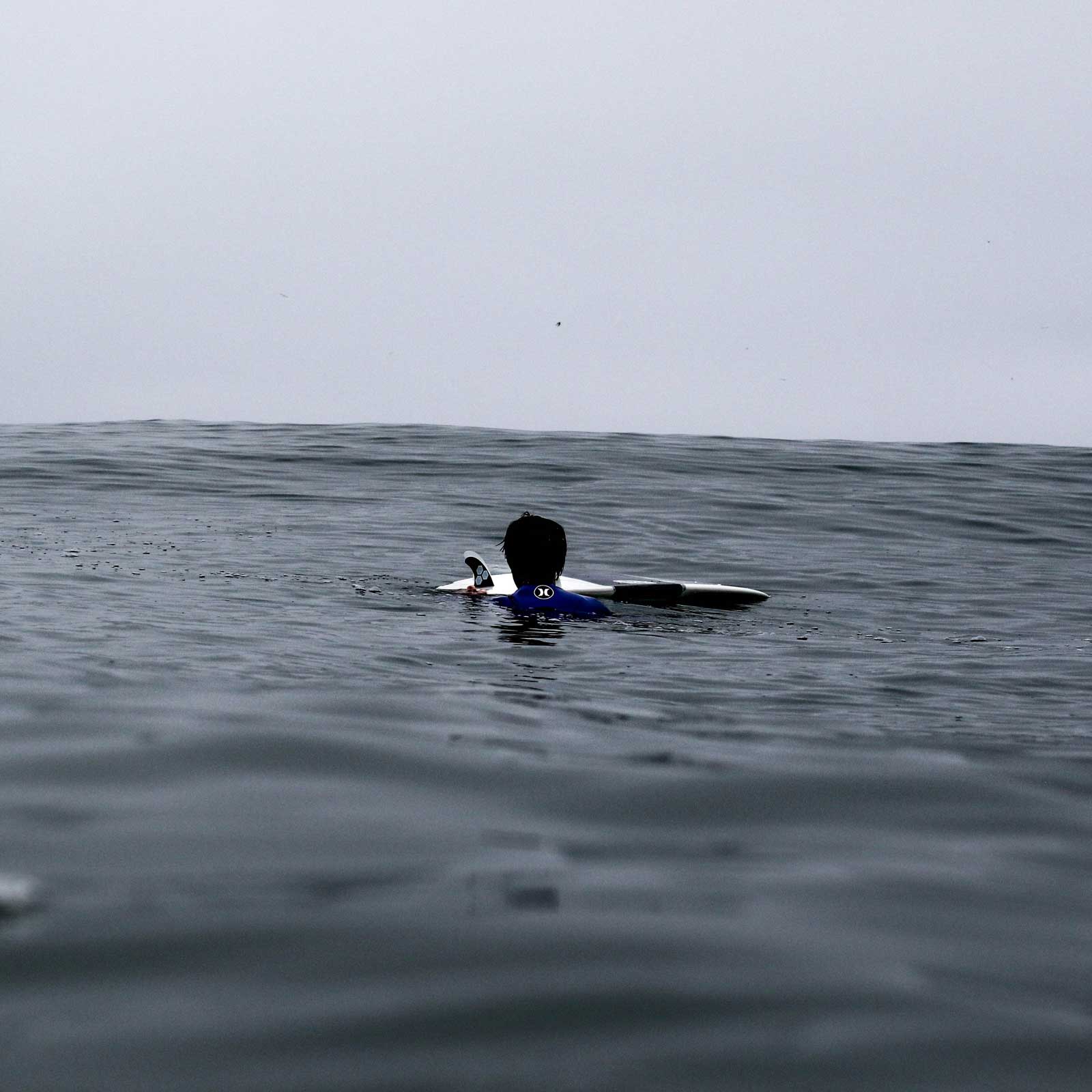When I first fell in love with surfing, I spent quite a while in France, working as a lifeguard in Biarritz. When I came back to Scotland, I would always go up to this beach in Westport. One morning, I headed there with just a short funboard and paddled out. There were six- or seven-foot swells. Conditions were great. I was the only person in the water, but that is perfectly normal for this beach. It’s one of the most isolated parts of Scotland.
I’d only caught about three waves before everything went wrong. I paddled out behind the break to rest. I’d really worn myself out climbing at an indoor gym two days before, and now my arm was cramping. I sat there for a couple of minutes catching my breath, but the wind began carrying me out. When I started trying to head back in, a cramp in my right shoulder made my paddling shockingly bad. So the wind just took over. By that time, there were a few people on the beach, and I tried signaling for help, but they were too far away. The wind became relentless. Instead of trying to paddle in, I decided to aim for the jut of land to the south, but the wind was still pushing me away from shore.
After several hours, the current switched and began carrying me north, so I tried to hit a different piece of land. But I was maybe three miles from shore at this point. By late afternoon, I ended up so far out, I no longer had any reference point to tell which way I was moving. Night fell and I was exhausted. I decided to count 30 seconds paddling, then stop and count 30, then paddle again. I was basically heading toward Ireland.
It was the middle of the night, I was freezing cold, and I was passing out. I was thinking I was going to die. I was paddling as often as possible to generate heat, but the board was so small, and I could only keep about half my body above water. The wind really started whipping up waves, which were going over me, causing me to cough and sputter. My feet were numb, my muscles were cramping.
At some points, I wanted to just pass out and slip into the water. I started saying goodbye to everyone in my head. Goodbye, I love you, I’m sorry.
When the sun began to rise, I immediately thought about how I was supposed to be at work that day, and figured they might contact my parents to find out where I was. I found out later that that’s when the search started. By about noon, I actually saw a helicopter searching in squares—but it stopped a couple of squares away from me and flew away. I decided to try and stay in that area, but it never returned.
I was horribly, horribly dehydrated and a little bit delirious. The day was ending. I thought I’d done well to carry on this long, but I was done. I was ready to die. Then another helicopter came from the direction of the sunset. I could see the copilot looking. Even when they were getting ready to drop down and recover me, I still wasn’t convinced it was really happening. Once the line was in the water, the rescuer came up to me and said, “Well done.”
As told to Peter Frick-Wright.


